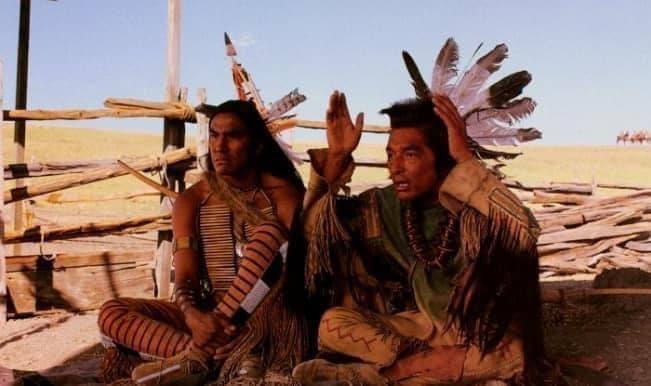Dances With Wolves (1990)

Released in 1990, Dances with Wolves stands as one of the most influential and visually stunning films in cinema history. Directed by and starring Kevin Costner, the movie is an epic Western that explores themes of identity, culture, and the clash of civilizations. Set during the American Civil War, it presents a unique and nuanced depiction of Native American life, a rare sight in Hollywood at the time. The film received widespread acclaim, earning seven Academy Awards, including Best Picture, and left an indelible mark on the Western genre.
Plot Overview
The story follows Lieutenant John J. Dunbar (Kevin Costner), a Union soldier who, after a heroic act during the Civil War, is given his choice of assignment. Opting for the frontier, Dunbar is stationed at a remote outpost on the plains. Isolated and far from civilization, he begins to encounter the local Sioux tribe. Initially mistrustful of each other, Dunbar and the Sioux gradually form a bond based on mutual respect and understanding.
As Dunbar spends more time with the tribe, he becomes deeply integrated into their way of life, earning the name “Dances with Wolves” for his peaceful interaction with a wild wolf. The film takes the audience on a journey of transformation, as Dunbar’s loyalty shifts from the army to the Sioux people. However, this newfound harmony is threatened by the encroaching force of the U.S. military, bringing the story to a climactic and emotional conclusion.

Dances with Wolves broke new ground in its portrayal of Native Americans, offering a more authentic and humanizing representation compared to the stereotypical portrayals that had dominated Westerns for decades. The film features extensive use of the Lakota language, with English subtitles, which added a layer of cultural immersion and respect for the Sioux people.
The cinematography is breathtaking, capturing the vast and untouched beauty of the American West. Sweeping shots of the plains, buffalo herds, and intimate scenes within the Sioux village help to create a world that feels alive and deeply rooted in nature. The musical score by John Barry complements this visual spectacle, evoking the emotions and grandeur of the frontier.
Themes and Impact
At its core, Dances with Wolves is about transformation and empathy. Dunbar’s journey from a soldier of the Union to a member of the Sioux tribe reflects the broader themes of identity, belonging, and the tragic consequences of cultural imperialism. The film critiques the westward expansion of the United States, highlighting the devastating impact it had on Native American communities.
Beyond its cultural significance, the film also revived interest in the Western genre, which had been in decline for years. Its success opened the door for other filmmakers to explore the complexities of the American frontier with more nuance and care.
Awards and Legacy
Dances with Wolves was a massive success both critically and commercially. It won seven Academy Awards, including Best Picture, Best Director (Kevin Costner), and Best Cinematography. It also grossed over $400 million worldwide, solidifying Costner’s status as a top-tier actor and director.
More importantly, the film helped to shift the conversation around Native American representation in Hollywood. While it is not without its critics, many viewed it as a step forward in acknowledging the richness and dignity of Native American cultures.
Conclusion
Dances with Wolves is more than just a Western; it is a powerful exploration of cultural exchange, identity, and the cost of progress. With stunning visuals, a compelling story, and an enduring message about the value of understanding and respect, the film remains a classic, beloved by audiences and critics alike. Even over three decades later, its impact on cinema and its portrayal of the American frontier continues to resonate.
Suggested videos for you:











